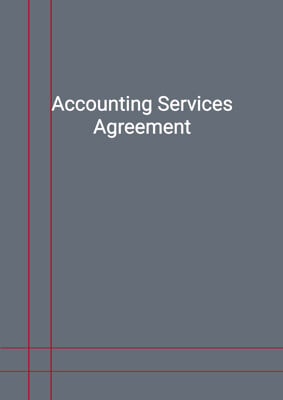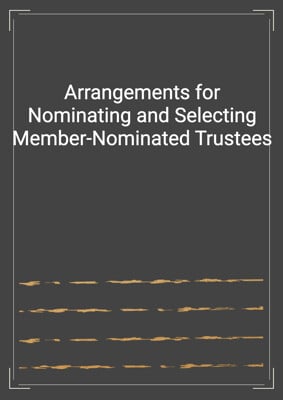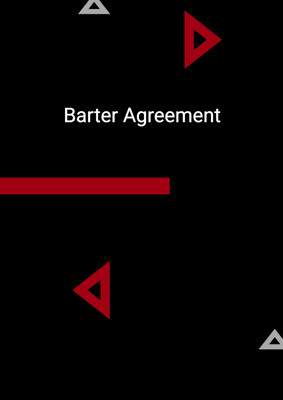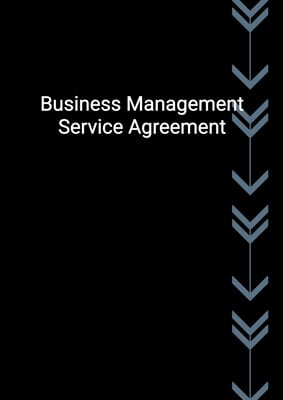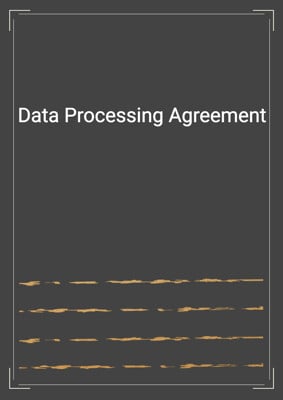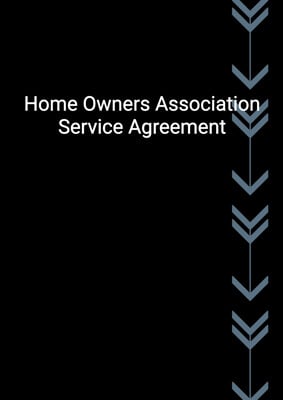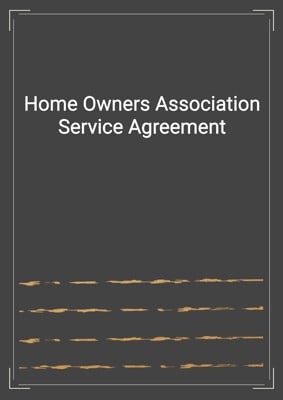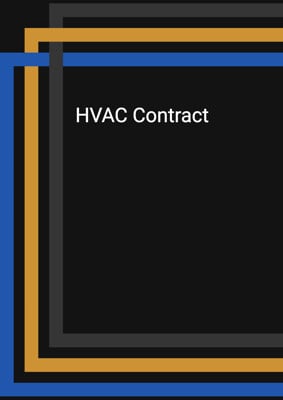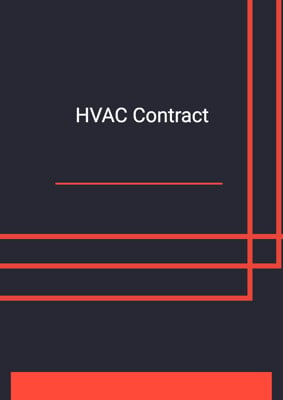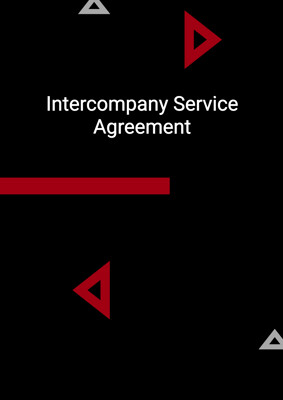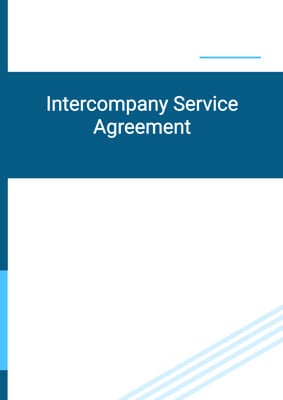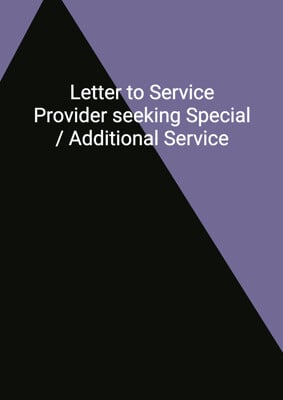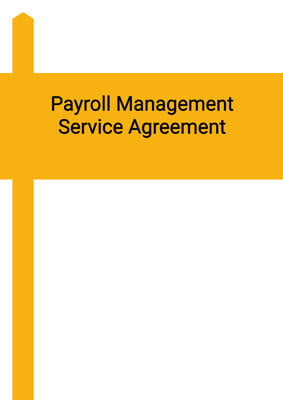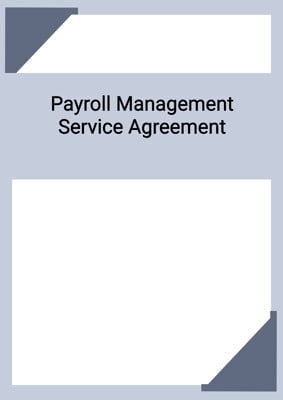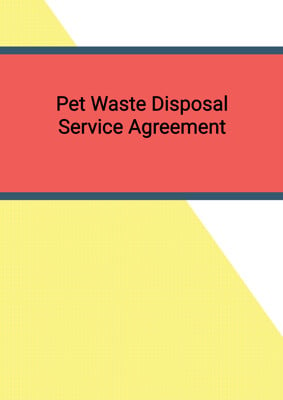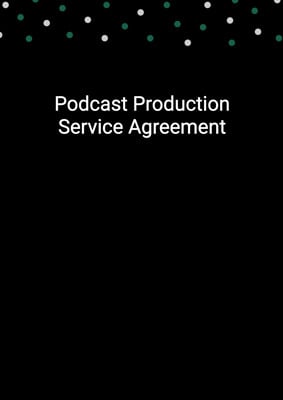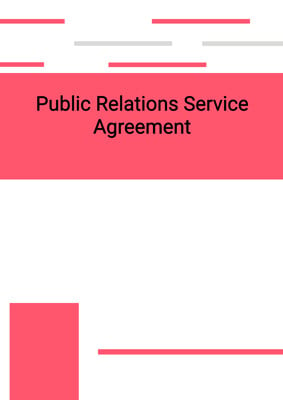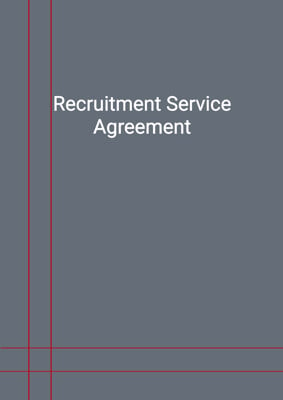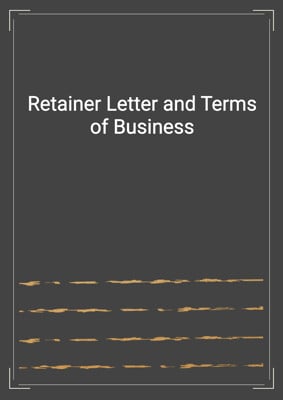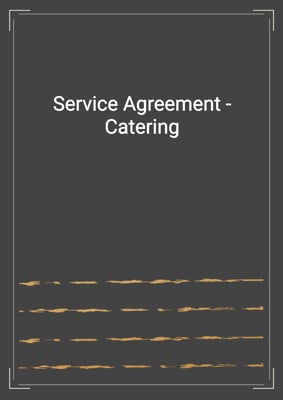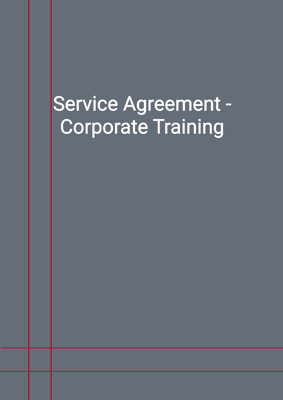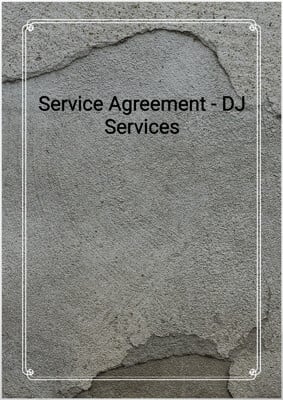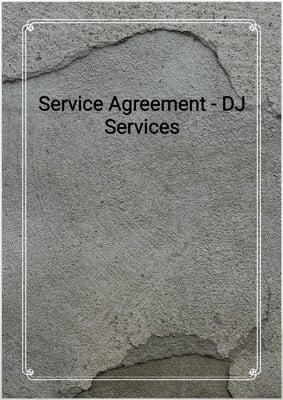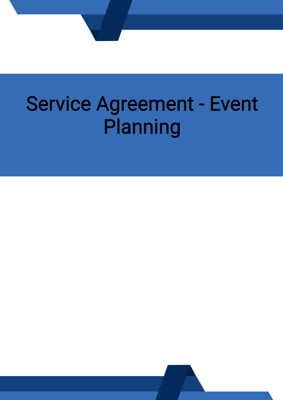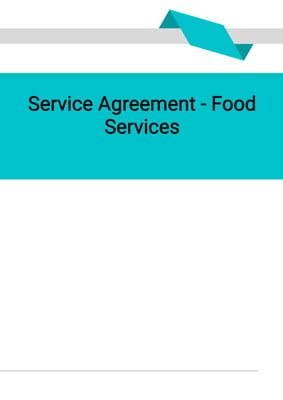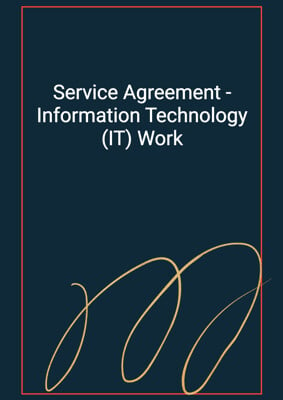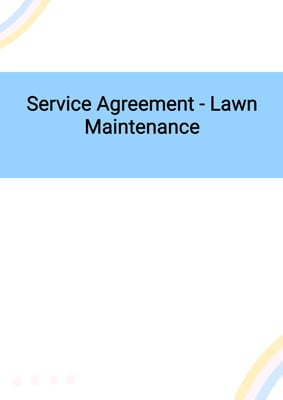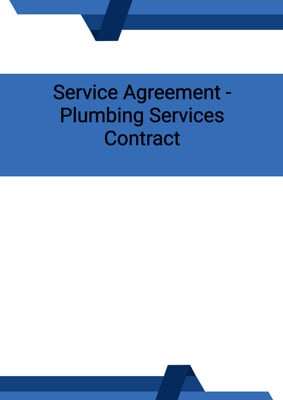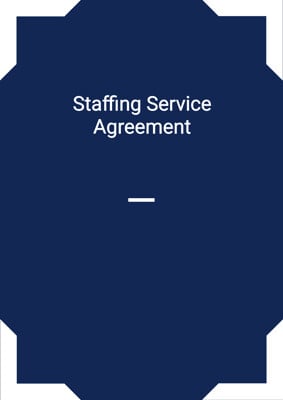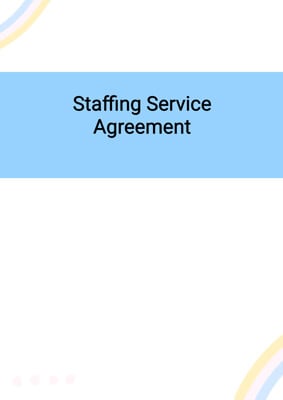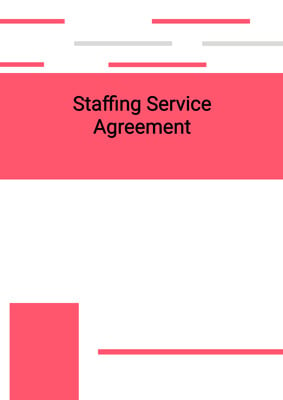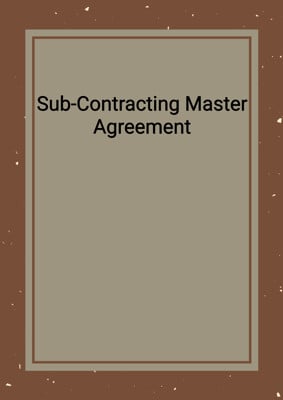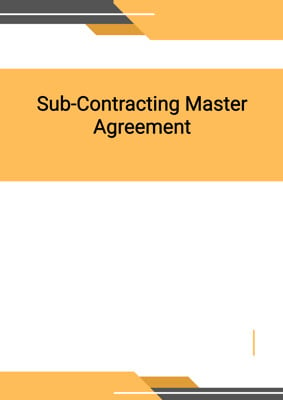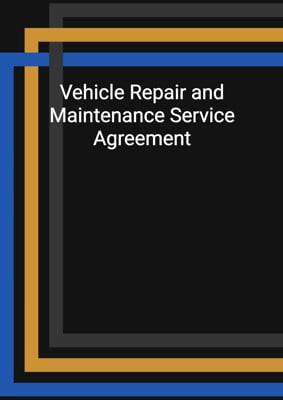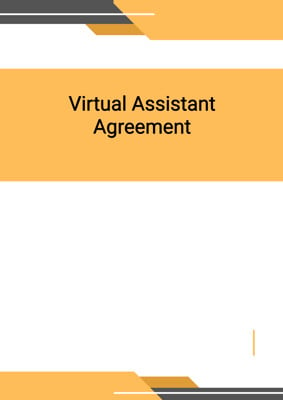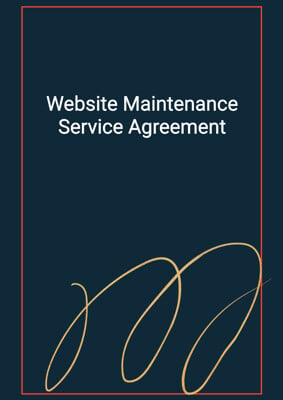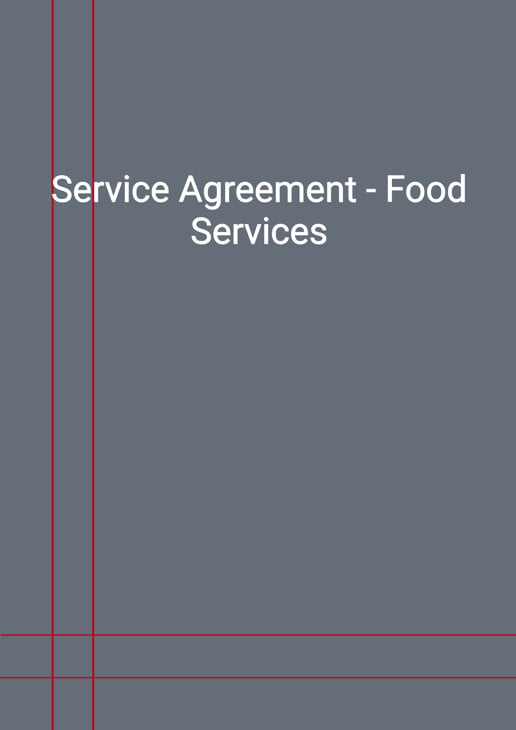
Service Agreement - Food Services
Servicer (Food Service Provider)
This is a Service Agreement suitable for food services. Under this agreement, a Servicer provides personnel to a Customer for an Agreed Price to provide food services. This agreement is drafted in favour of the Servicer (Food Service Provider).
How to Tailor the Document for Your Need?
01
Create Document
Fill in the details of the parties. You can click the "Fill with Member’s Information" button to complete it with information saved to your account.
02
Fill Information
Please fill in any additional information by following the step-by-step guide on the left hand side of the preview document and click the "Next" button.
03
Get Document
When you are done, click the "Get Document" button and you can download the document in Word or PDF format.
04
Review Document
Please get all parties to review the document carefully and make any final modifications to ensure that the details are correct before signing the document.
Document Preview
Document Description
The Service Agreement - Food Services is a legally binding document that outlines the terms and conditions between the Servicer and the Customer for the provision of food services. This agreement is important as it establishes the rights and obligations of both parties, ensuring clarity and preventing any misunderstandings or disputes.
The entire document is divided into several sections, each addressing specific aspects of the agreement. The first section, titled 'Interpretation,' provides definitions for key terms used throughout the agreement. This ensures that both parties have a clear understanding of the terminology used.
The second section, 'Servicer's Obligations,' outlines the responsibilities of the Servicer in providing the food services. It specifies that the services will be provided at a specific location and in a professional and diligent manner. The Servicer is also required to comply with all applicable laws and regulations.
The third section, 'Completion of the Work,' emphasizes the importance of timely performance by the Servicer. It states that time is of the essence and that the services should be completed by a specified completion date. If there is a delay, the Customer may grant an extension, taking into account the reasons for the delay.
The fourth section, 'Staff,' addresses the assignment of food service personnel by the Servicer. It allows for the substitution of employees if necessary and sets guidelines for breaks and working hours.
The fifth section, 'Service Fees,' outlines the payment terms for the services provided. It specifies the service fee, invoicing process, and payment due date. It also covers any additional expenses incurred by the Servicer and the process for disputing invoices.
The sixth section, 'Cancellation,' establishes the conditions for canceling the agreement. It requires a minimum notice period and outlines the consequences of cancellation by either party.
The seventh section, 'Laws and Permits,' highlights the Servicer's responsibility to obtain all necessary licenses and permits for providing the services. It also emphasizes compliance with health department regulations and the exclusion of alcoholic beverage service.
The eighth section, 'Background Checks,' assures the Customer that the Servicer's employees have undergone comprehensive background checks and have no criminal history or listing on sex-offender registries.
The ninth section, 'Licenses and Insurance,' requires the Servicer to obtain the necessary licenses and maintain appropriate insurance coverage for liability arising from the services.
The tenth section, 'Warranties and Indemnities,' addresses the reporting and rectification of any defects in the services. It clarifies that the customer's rights and benefits are enforceable only through the Servicer and limits the Servicer's liability to the amount of fees received.
The eleventh section, 'Term and Termination,' specifies the duration of the agreement and the conditions for termination by either party. It also covers the consequences of termination, including outstanding balances.
The twelfth section, 'Ownership of Materials,' addresses intellectual property rights and licenses granted by the Servicer to the Customer. It clarifies that the license terminates upon agreement termination.
The thirteenth section, 'Confidential Information,' imposes obligations on the Customer to keep the agreement and any disclosed information confidential, subject to certain exceptions.
The fourteenth section, 'Announcements/Publicity,' requires prior approval for any announcements or disclosures related to the agreement, except where required by law.
The fifteenth section, 'Amendment,' states that any changes to the agreement must be in writing and signed by the parties. It clarifies that variations do not constitute a general waiver of provisions.
The sixteenth section, 'Assignment,' restricts the Customer from assigning the agreement or sub-contracting without the Servicer's written consent.
The seventeenth section, 'Severability,' addresses the invalidity or unenforceability of any provision and the parties' obligation to negotiate a valid substitute provision.
The eighteenth section, 'Further Assurance,' requires the parties to perform any acts or execute documents necessary to implement the agreement.
The nineteenth section, 'Warranty of Capacity and Power,' includes representations and warranties by each party regarding their authority and capacity to enter into and perform the agreement.
The twentieth section, 'Force Majeure,' relieves the parties from liability for failure or delay in performing obligations due to causes beyond their control.
The twenty-first section, 'No Rights under Contracts for Third Parties,' clarifies that only the parties to the agreement have enforceable rights.
The twenty-second section, 'Arbitration and Proper Law,' encourages amicable resolution of disputes and specifies the jurisdiction for any legal proceedings.
The twenty-third section, 'Notices and Service,' outlines the methods and deemed delivery times for serving notices between the parties.
The twenty-fourth section, 'Counterparts,' allows the agreement to be executed in multiple counterparts, with each counterpart considered an original document.
This detailed description provides a comprehensive overview of the entire document, highlighting the importance of each section and its role in establishing the rights and obligations of the Servicer and the Customer.
How to use this document?
To use the Service Agreement - Food Services effectively, follow these steps:
1. Review the agreement: Familiarize yourself with the entire document to understand its purpose, terms, and conditions.
2. Identify the parties: Enter the names and principal places of business for both the Servicer and the Customer in the agreement. This ensures clear identification of the parties involved.
3. Specify services and completion date: Clearly describe the food services to be provided by the Servicer, including the type of personnel and their roles. If applicable, agree on a completion date for the services.
4. Understand obligations: Review the Servicer's obligations outlined in Section 2. Ensure that the Servicer agrees to provide the services in a professional and diligent manner, complying with all relevant laws and regulations.
5. Determine payment terms: Discuss and agree on the service fee, payment schedule, and any additional expenses. Understand the invoicing process and the consequences of late payment.
6. Address cancellation: Establish the minimum notice period for cancellation and the associated fees. Clarify the circumstances under which cancellation by either party is allowed.
7. Consider licenses and permits: Discuss the need for licenses and permits required to provide the food services. Ensure compliance with health department regulations and exclude alcoholic beverage service unless agreed upon separately.
8. Verify background checks: Request confirmation from the Servicer that their employees have undergone comprehensive background checks and have no criminal history or listing on sex-offender registries.
9. Review warranties and indemnities: Understand the process for reporting and rectifying any defects in the services. Clarify the limitations of the Servicer's liability and the customer's obligation to indemnify the Servicer.
10. Determine the term and termination conditions: Agree on the duration of the agreement and the conditions for termination by either party. Discuss the consequences of termination, including outstanding balances.
11. Address ownership of materials: Discuss any intellectual property rights associated with the deliverables and services. Understand the scope of the license granted by the Servicer and its termination upon agreement termination.
12. Maintain confidentiality: Ensure that both parties understand and agree to keep the terms of the agreement and any disclosed information confidential, subject to certain exceptions.
13. Seek legal advice if necessary: If you have any concerns or questions about the agreement, consult with a legal professional to ensure your rights and interests are protected.
By following these steps, you can effectively use the Service Agreement - Food Services and establish a clear understanding between the Servicer and the Customer regarding the provision of food services.
Not the right document?
Don’t worry, we have thousands of documents for you to choose from:
